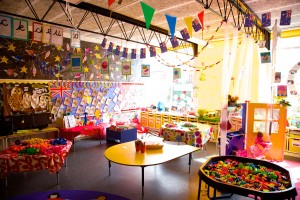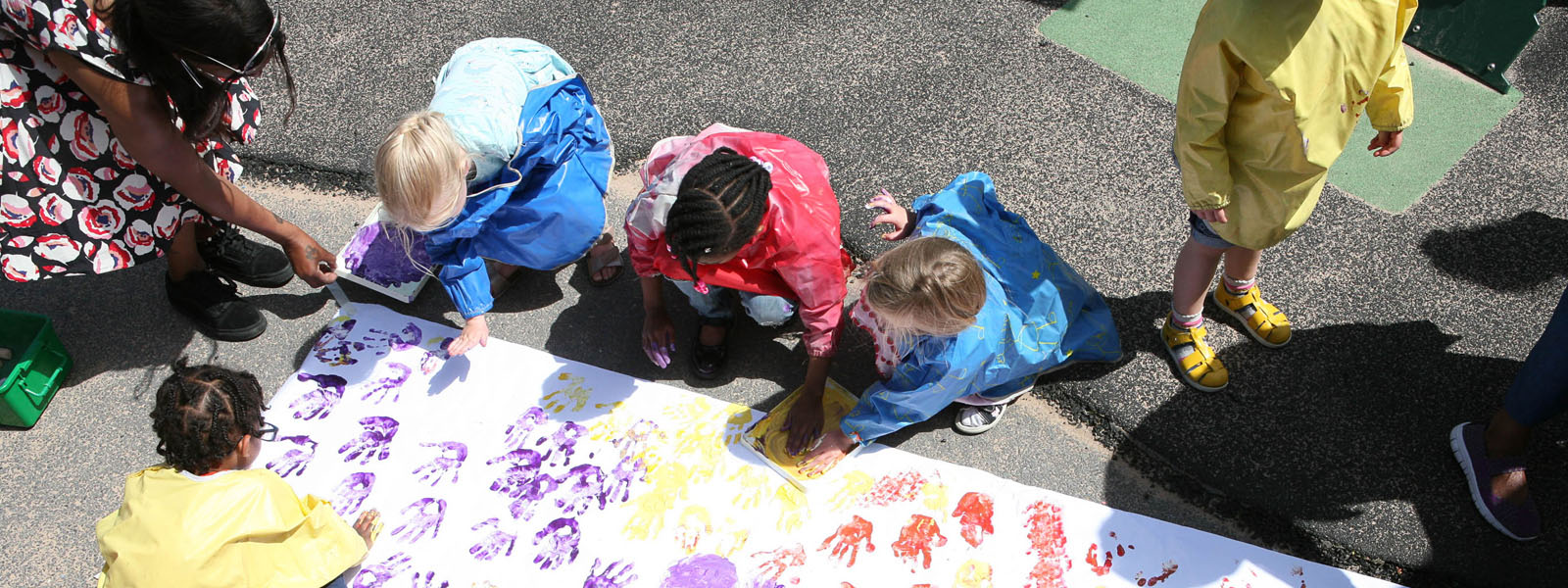Early Years – Nursery and Reception

In the Early Years at Fairlawn, we strive to provide the highest quality care and education for all our children, thereby giving them a strong foundation for their future learning.
Intent
Our intent is to provide a challenging and engaging curriculum which:
- Is accessible to all children in the EYFS which provides the children with the knowledge, cultural capital and self-belief they need to be able to thrive.
- Provides opportunities for children to learn through purposeful play in all areas of learning and development both indoors and outdoors.
- Ensures children leave reception with an excellent foundation for ongoing literacy and mathematical development and with a positive, can-do attitude towards learning.
- Promotes discussion and developing language and in building confidence and relationships.
Implementation
Children in our nursery and reception primarily learn by playing and exploring, being active and thinking critically and creatively both indoors and outdoors. Children make their own decisions about where they learn best, and teachers ensure that there are opportunities for all areas of learning both inside and outside.
We recognise the importance of children’s play. It is an essential and rich part of their learning process, supporting them in all areas of development including:
- Problem solving
- Working memory
- Focus and attention
- Regulation of emotions
- Planning and setting intentions
- Developing and setting intentions.
Play is a powerful motivator encouraging children to be creative and to develop their ideas, understanding and language. EYFS teachers provide both structured and unstructured play opportunities inside and outside. These activities are designed to engage children in practical, first-hand experiences which will support children to discover, explore, investigate, develop their personal interests and areas of curiosity, and help to make sense of the world around them as they begin to understand specific concepts.
At Fairlawn, the curriculum for our nursery and reception pupils is underpinned by the Early Years Foundation Stage Statutory Guidance. We also use the non-statutory Development Matters guidance to help shape our curriculum.
The curriculum is centred on 3 prime areas of learning:
- Communication and Language.
- Physical Development
- Personal, Social and Emotional Development
Learning activities will also be framed within four specific areas which strengthen the prime areas. These are:
- Literacy
- Mathematics
- Understanding of the World
- Expressive Arts and Design
These Areas of Learning and Development address children’s physical, cognitive, linguistic, social and emotional development. No one aspect of development stands in isolation from the others as all areas of learning and development are all closely interlinked. This ensures the delivery of a holistic, child-centred curriculum which allows children to make links between what they are learning.
Themes/topics throughout the year ensure that the children are given a wide range of active, real-life and everyday experiences to enhance their learning about their world. These are chosen to reflect the children’s interests, seasonal events and include visits in and around the local area. This ensures children fully engage with their learning, having high levels of sustained thinking and concentration. Adults then add to this with ‘wonderings’ that serve to deepen their understanding and progression.
We develop a passion for reading and ensure that the children are exposed to quality texts and language through sharing of stories and having meaningful texts within the environment. We follow the Little Wandle reading programme that secures a firm understanding of phonics and early reading, and well as developing skills in comprehension and prosody.
We follow a maths mastery approach using NCTEM as our guide for promoting mathematical thinking. Whilst maths is taught directly through short carpet sessions, we also provide opportunities for children to explore concepts further in the continuous provision.
We also understand the importance of vocabulary development on later life outcomes, and we therefore explicitly teach the children new vocabulary every week through our phonics and topic sessions.
Our outdoor provision provides the children with rich, child-led opportunities that allow them to engage in all the areas of the EYFS, as well as with different peers and adults. The free-flow between here and the 2 reception classes develops their independence and learning possibilities.
Explicit teaching:
All children have access to daily, quality first teaching of phonics and early mathematics, with additional support for those who need more scaffolding.
Children are taught the skill of writing through explicit class teaching or as a group through our topic focus.
We understand that some aspects of our curriculum are less linear in nature as we support children to develop critical learning behaviours of resilience, reflectiveness, curiosity, collaboration and independence. We understand that these skills underpin a child’s ability to learn. Many of these are taught ‘in the moment’ and serve to develop children’s communication and language skills.
Parental involvement in the curriculum:
In Reception, the children take home weekly Maths Home Learning activities and phonics practice sheets that match the phases being taught in class.
Impact
We aim to provide all pupils; regardless of ethnicity, culture, religion, home language, family background, learning difficulties, disabilities, gender or ability, equal access to all aspects of school life and work to ensure that every child is valued fully as an individual.
During their time with us, children will be equipped with the skills they need to become successful learners and socially confident young people. They will be active, engaged, focussed, communicative, kind and independent. They will have an interest in understanding the world around them and be excited to find out more; making links across subject areas. Our children will be happy and secure in themselves, able to negotiate successfully and at the end of the year, be ready to make the transition to the next stage of the learning journey in Year 1.



